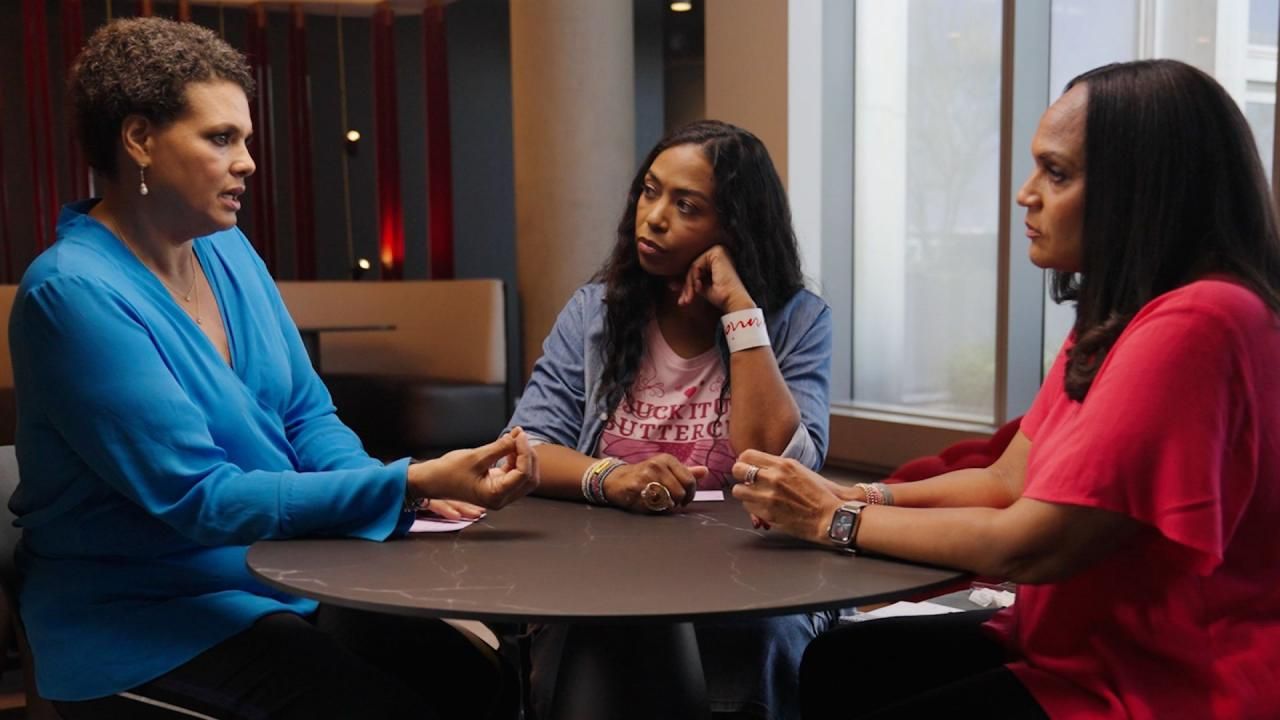Ananda Lewis, once a vibrant voice on MTV, now finds herself navigating the complex and often harrowing journey of stage IV breast cancer and life choices. Reflecting on her path since her initial diagnosis in 2020, she reveals a deeply personal decision that diverged from medical advice: opting against a double mastectomy.
At 51, Lewis openly discusses her past reluctance to undergo mammograms, driven by fears surrounding radiation exposure. This apprehension set the stage for her cancer diagnosis, which she shared with her followers on Instagram.

In a recent round-table conversation with CNN’s Stephanie Elam and Sara Sidner, both of whom are also confronting their own cancer battles, Lewis candidly revisited her choice to reject surgical intervention.
Initially, Lewis believed in the innate wisdom of her body. “I thought I could detoxify and heal myself,” she stated, emphasizing her faith in natural remedies over conventional medical procedures.
She pursued a regimen that included homeopathic treatments, dietary changes, and improved sleep practices. For a time, it seemed she was on the right track. However, the reality of her situation shifted dramatically when she learned that her cancer had metastasized.
View this post on Instagram
In a moment of vulnerability, Lewis described an encounter with mortality that shook her to the core. “I really thought I had this,” she admitted, reflecting on the frustration and anger she felt towards herself during this period.
Laying in bed for weeks, she confronted the notion of death head-on, making a promise to herself: “If you come for me, I’ll make it fun for you.” This poignant declaration underscores not only her resilience but also her desire to reclaim agency over her life amidst uncertainty.
While Sidner spoke about seeking joy in the wake of her diagnosis and opting for a double mastectomy as a means to secure her future, Lewis emphasized the importance of quality of life in her decision-making process. “I want to want to be here,” she articulated, highlighting that her choices were deeply personal and rooted in what felt right for her.

Elam’s reflections on their discussion encapsulate the essence of their shared experience: an open dialogue about cancer that aims to inspire others. She expressed gratitude for their willingness to share their stories publicly, hoping that such conversations might encourage even one woman to prioritize her health through regular screenings.
In this narrative of courage and introspection, Lewis exemplifies the complexities faced by those battling cancer—balancing personal beliefs with medical advice while navigating an unpredictable journey.
Also Read | Danielle Fishel Opens Up About Breast Cancer and Family Conversations








